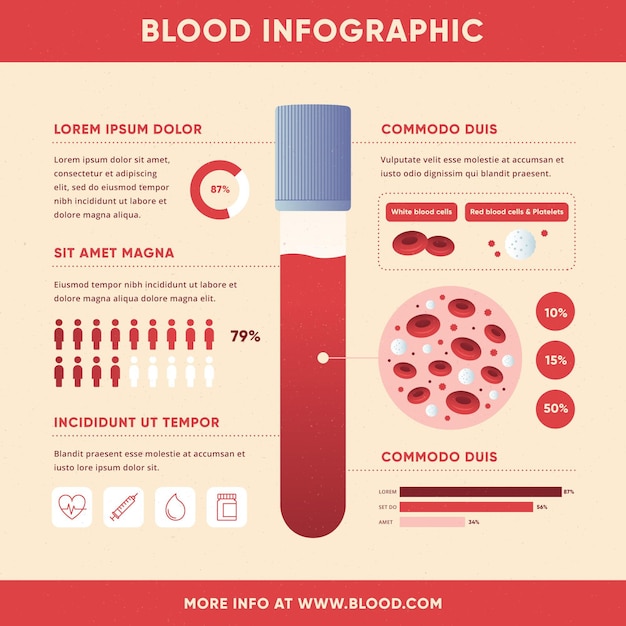O- Blood Type Facts

People with O- blood type are considered universal donors because their blood can be given to anyone in need.
O- blood type is the rarest blood type, accounting for approximately 7% of the world’s population.
O- blood type individuals have a higher risk of developing ulcers and stomach conditions.
O- blood type people are more prone to mosquito bites due to the specific enzymes present in their blood.
O- blood type individuals have a natural tendency to be more alert and focused.
Carrying an O- blood type gene can provide immunity against certain diseases.
People with O- blood type have a higher risk of developing thyroid issues.
O- blood type individuals typically have a strong immune system.
O- blood type people are believed to have a higher tolerance for pain.
Individuals with O- blood type are more prone to developing blood clotting disorders.
O- blood type individuals have a higher risk of developing gallstones.
People with O- blood type tend to have lower cholesterol levels.
Individuals with O- blood type have a higher risk of developing vision problems.
O- blood type people are more likely to have an athletic build.
O- blood type individuals have a lower risk of developing pancreatic cancer.
People with O- blood type are more likely to have a positive outlook on life.
O- blood type individuals have a higher risk of developing skin allergies.
O- Blood Type Facts part 2
People with O- blood type have high levels of stomach acid, making them less susceptible to food poisoning.
O- blood type individuals are more likely to have a lower risk of developing cardiovascular disease.
People with O- blood type are more likely to have a higher metabolism.
O- blood type individuals are more prone to stress-related health issues.
People with O- blood type have a lower risk of developing kidney stones.
O- blood type people tend to have a natural ability to handle high-stress situations.
O- blood type individuals have a higher risk of developing liver diseases.
People with O- blood type are more likely to be extroverted and outgoing.
O- blood type individuals have a higher risk of developing osteoporosis.
People with O- blood type are more likely to have a positive response to certain cancer treatments.
O- blood type individuals tend to have a longer lifespan on average.
People with O- blood type are more likely to have a higher fertility rate.
O- blood type individuals have a higher risk of developing autoimmune diseases.
People with O- blood type are more likely to have a higher resistance to certain viruses.
O- blood type individuals have a lower risk of developing dementia and Alzheimer’s disease.
People with O- blood type are more likely to have a higher sensitivity to caffeine.
O- blood type individuals have a higher risk of developing multiple sclerosis.
People with O- blood type are more likely to have a higher resistance to certain bacteria.
O- blood type individuals have a higher risk of developing allergies.
People with O- blood type are more likely to have a higher tolerance for spicy foods.
O- blood type individuals tend to have a faster recovery rate from certain surgeries.
People with O- blood type are more likely to have a higher resistance to certain parasites.
O- blood type individuals have a higher risk of developing gout.
People with O- blood type are more likely to have a higher resistance to certain fungal infections.
O- blood type individuals tend to have a stronger sense of intuition.
People with O- blood type have a lower risk of developing blood cancers.
O- blood type individuals have a higher risk of developing macular degeneration.
People with O- blood type are more likely to have a higher tolerance for cold temperatures.

